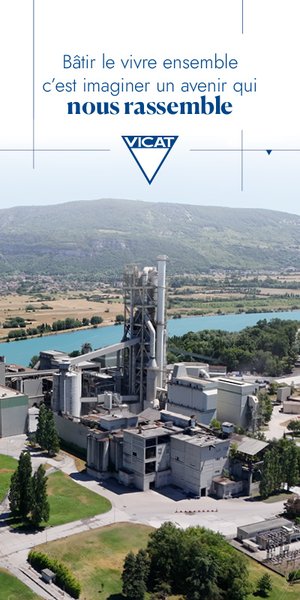Politique Internationale — Is it the role of the Energy Regulation Commission (CRE) to deal with all forms of energy? What precisely are your missions?
Jean-François Carenco — The energy regulation entrusted to the CRE concerns both the networks and the electricity and gas markets. It falls on us to ensure the correct functioning of these markets in the interests of the consumers, be they private or industrial. What is to be understood by this? The price of energy is not the only criterion that must guide our missions of control and surveillance. It is up to us to define a fair price for energy at the same time as watching over the quality of supply and the safety of delivery. Our impartial expertise in the sector allows us to shed light on government decisions and thereby to contribute to the search for a better energy mix. Lastly, the CRE works with European bodies, other European countries and Europe — which is in our DNA — to favour the integration of energy markets. Within our authority, no fewer than 25 people are assigned to these questions. The CRE is in touch on a daily basis with public authorities such as the European Commission, the European Parliament, and the French government and parliament.
P. I. — The gas and electricity markets are more and more complex. Is this trend irreversible?
J.-F. C. — We have said that the energy market is a European market, with its share of actors and rules that are lost in ramifications that are sometimes very complex. It is a sector where there is a dominant thinking, that of “market design”: that the organisation of the market rests solely on the short-term price of energy and that this determines the level of investment. But I think that it is the contrary: investment defines the market. In this context, the task of the regulator is to take into account the short-term constraints while still offering the actors visibility on the future, which is not easy. Even if we are heading towards a decentralisation of electricity production sites, the French market remains defined by a very centralised system. Adding up its different sectors, EDF makes more than 80 per cent of the electricity, mostly from nuclear sources. On the other side, more than 70 providers are today registered with the CRE, compared with just a handful a few years ago. Can you imagine? This very unbalanced cohabitation between production and supply makes this market all the more difficult to understand for the public at large.
P. I. — You said in your introduction that the regulation of the energy market is conducted for the benefit of the consumer. And yet, for all French households, the bill tends to grow, sometimes in very large proportions. Does this not mean that the liberalisation of the market, of which the CRE is the No1 arbitrator, has failed with regard to its initial ambitions?
J.-F. C. — According to a very widespread idea, competition automatically leads to lower prices for the consumer. Not only is this reductive but it is very often wrong. I’ll come back to the 70 providers: they are engaged in a battle without quarter even as the volumes of consumption have not moved excessively. All these actors cannot live, in all senses of the word, within a context of an eternal lowering of tariffs. In addition, the question of price should not be seen as the sole horizon of liberalisation. Thanks to the opening of the gas and electricity markets, this sector has become much more innovative and that is what is important. Many companies are now competing in ingenuity to offer more and more efficient services. Let’s take the example of home automation: the control of energy consumption inside households has entered a new era. I am certain that, had we kept the quasi-monopolistic state of supply, there would not be this inventiveness and this agility in the service of the consumer.
P. I. — Another characteristic of the energy market in France, and one that the CRE regularly stresses, is to be found in the predominance of the production of electricity of nuclear origin. This sector is today confronted with strategic choices, between the extension of the existing park, the construction of new reactors and, of course, the struggle against global warming. Is the longevity of the civil atom an irreplaceable constant or are we heading towards other energies?
J.-F. C. — The weight of nuclear power in France is an inescapable historical given. As the independent authority in the sector, we are very often consulted, which leads us to have an opinion on the issue. Electricity production depends, for a great deal, on this network which has the double advantage of providing good-value electricity, cheaper than that of our European neighbours, and to secure our supplies. A third advantage and not the least: nuclear power is a decarbonised energy. This element deserves to be underlined at a moment when we must do everything to limit the production of CO2. If current reactors are replaced, as the authorities envisage, and if the commitment to lowering the share of nuclear in electricity production from 75 to 50 per cent by 2035 is respected, the French nuclear park is destined to continue functioning until 2120. Perhaps I am giving the impression of defending the use of the atom come what may. This is not at all the case. The advantages of nuclear power should not stop us questioning its future: the matter of the treatment of waste, for which no solution exists today, severely limits its long-term prospects. Even more so as renewable energies, which are developing at a very high speed, are destined to take over progressively.
P. I. — The future of energy lies in renewables. This idea is globally accepted, but it is still very complicated to install on land the means of green production. How does the former prefect that you are, who had functions very close to the population, view this reluctance?
J.-F. C. — We are living in a paradox. On the one hand, we are a country that is among those that are the easiest to govern, which should allow us to give body to this policy of developing renewable energies. On the other, we are living in a society of overconsumption, in the time of the overwhelming “here and now” that often creates obstacles to the progress of projects for the future. French society is marked by hyper-mistrust, synonymous with the piling up of opposition to matters that are nonetheless of general interest. Let’s take the high-tension line from Cotentin to Maine, which has the role of carrying the production of the Flamanville EPR in the Manche department. I dread to imagine the accumulation of procedures and challenges that the project would have faced if it had been launched in the present day…
P. I. — The CRE is directly associated with the surge in renewable energies, especially through its management of calls to tender. At your level, do you have the power to speed up the transition to these green energies?
J.-F. C. — At each call for bids, the projects proposed are many. They are carried out according to the rules and the time limits laid down by law. Thanks to this procedure and its competitive effect, the prices of renewables are progressively regulated so as to be competitive with those on the market. But this is not the only lever that the CRE has used to galvanise these sectors. We also back green energies through our opinions and recommendations given to the government, the reports that we write and a fair number of other documents that we publish.
P. I. — Of course, the CRE is an independent authority but on the market where it sets the regulations, it comes up against monsters like EDF, Engie or Total. How do you adapt to the presence of these giants? Are they not wont to dictate their positions?
J.-F. C. — Yes, France has some big actors in the energy field and this is good for the industrial standing of our country. We consider them partners in the context of our missions. They defend the interests of their own companies and this is understandable: they have aims that respond to a strategy. They are also very attentive to the stakes of town and country planning. They are not “anti-France” as we sometimes hear, when one or other measure of economic rationalisation is highlighted. These giants allow the country to keep its industrial roots. This is too often forgotten. This changes nothing in the exercise of our surveillance missions that we assume in the general interest. But I want to stress here my attachment to these industrial champions who make France what it is.
P. I. — Electricity, we often hear, is the energy of the future. Do you agree with this assertion?
J.-F. C. — I am always careful when it comes to talking about the future. Those who say they know precisely how the “energy mix” will turn out are mistaken. To attempt to devise the scenarios, it is a good idea to doubt and put in question received ideas. Electricity has certainly a very great potential ahead of it. To develop, the electricity system will have to resort to means of increased flexibility of network utilisation. Just recently in France, the electricity networks bore about 150 points of injection, mostly from nuclear power stations, hydroelectric dams and thermal stations. By combining self-sufficient structure, recharging terminals for electric cars and, more widely, the integration of production from renewable energy sites, we are approaching little by little a million points of injection. The future of the electricity sector depends on the networks’ capacity to absorb this change of paradigm.
P. I. — Indeed, the networks: the CRE plays an essential role in this domain because it validates the investment budgets for the Electricity Transport Networks (RTE), the manager of high- and very high-tension lines. What will happen to these networks the day that millions of households opt for self-sufficiency, with an electricity production that is much more localised than today?
J.-F. C. — First of all, we are not there yet. Then, this programmed break-up of production has to be handled with care. In any case, we shall always need energy networks and at the same time the means to finance them. We must therefore think of the margins of financial manoeuvre that can be unblocked to ensure the security of the networks. Finally, and this is linked, it would be wrong to believe that a household that is self-sufficient will escape the tariff for using the network and the taxes on consumption. Our French energy system rests on principles of solidarity and equality and everyone must contribute to it if we want to have electricity, cheap and always available, everywhere. This holds true for our model of a society that both redistributes and is egalitarian.
P. I. — How is your experience as a prefect useful when you have to come down on one side or the other where energy is concerned?
J.-F. C. — My career as a prefect, in four different regions, showed me how indissociable energy questions are from territorial questions. For example, if the waters of the Garonne heat up, then the Golfech nuclear power station operated by EDF must be stopped. On another register, if Switzerland did not regularly empty Lake Geneva, then this would impair the functioning of several hydroelectric stations. And so on and so forth: energy installations have a big place in the problematics of town and country planning with, as a by-product, the need to communicate with the population. The prefect’s role, as for energy, demands at one and the same time a real knowledge of technical and planning stakes, a good dose of teaching skills and convictions to be at the service of citizens and to reply to their needs.
P. I. — The CRE is marking its 20th anniversary. How do you see its next 20 years?
J.-F. C. — It will surely know some specific evolution but this can only be envisaged in the light of two great constants. The first is the place of Europe. For 75 years now, this region of the world has been living in peace and this is a record in the history of humanity. The second is the rejection of “experts” whose expertise and competency are violently contested. We are living through a crisis of representative democracy which is truly worrying if you consider, as I do, that this system has many more qualities than faults. I would use the formula of Winston Churchill: “democracy is the worst of all regimes except for all the others.” How can we counter this crisis of confidence? By ensuring that the State can rely on independent authorities conceived as safeguards and giving these authorities real skills and consequent means that allow them to accompany representative democracy. Public authorities will then be able to continue to carry out their responsibilities both respectfully and efficiently.
* Chairman of France’s Energy Regulation Commission (CRE).



















